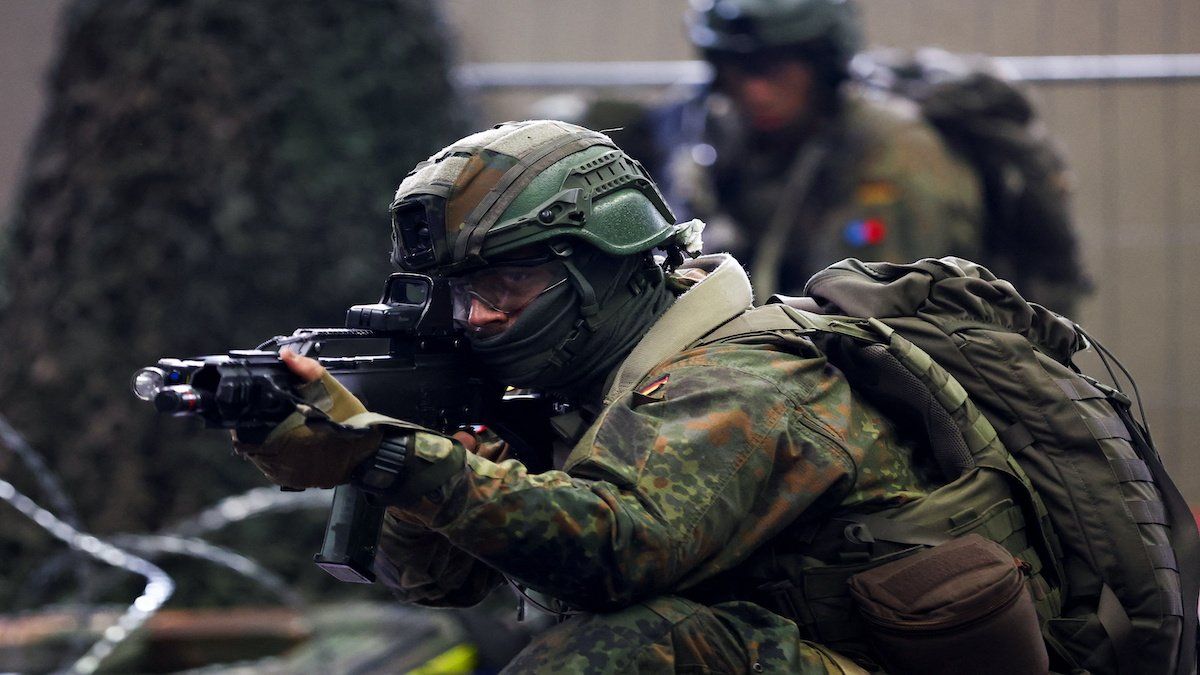Earlier this week, Friedrich Merz, Germany’s chancellor-in-waiting, made an astounding declaration: “The Americans … are indifferent to the fate of Europe,” he said. “Europeans must … ensure that we are at least capable of defending the European continent on our own.”
To be clear, the US hasn’t stepped away from Europe’s security just yet. But Trump 3.0’s aggressive posture towards the EU – on trade, free speech, and Ukraine – has made the specter of abandonment feel real enough.
The EU would need to replace some 300,000 US troops, as well as hundreds of tanks and artillery pieces, according to one report. The yearly cost would be some $260 billion.
Such a rapid increase would need to be financed initially by borrowing. But that could clash with EU, and country-level, debt limits meant to avoid financial crises. In Germany, for example, Merz on Tuesday ruled out weakening the constitutionally mandated debt limits – but he is also reportedly working with the outgoing parliament to create a massive new defense fund.
In the UK, meanwhile, PM Keir Starmerannounced further cuts to the British foreign aid budget to boost defense spending to 3% of GDP by the middle of the next decade (from 2.3% today.)
What would “defense” mean? Holding Russia at bay in Ukraine would be a big focus. But beyond that, naming the threats that Western European countries face directly could be contentious. Keep an eye out for this Sunday’s emergency EU defense summit, which will touch on just that.
The bottom line: For decades, the US has underwritten Europe’s security. But Europe is now being forced to answer questions it never expected to ask.
